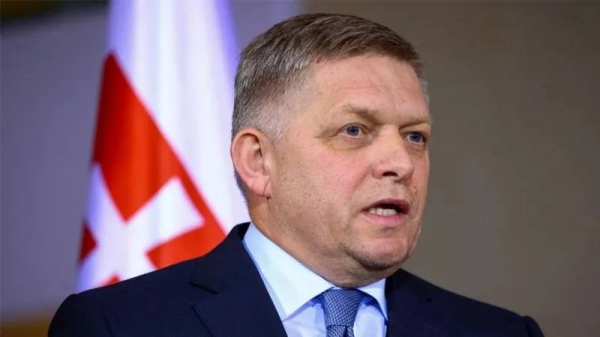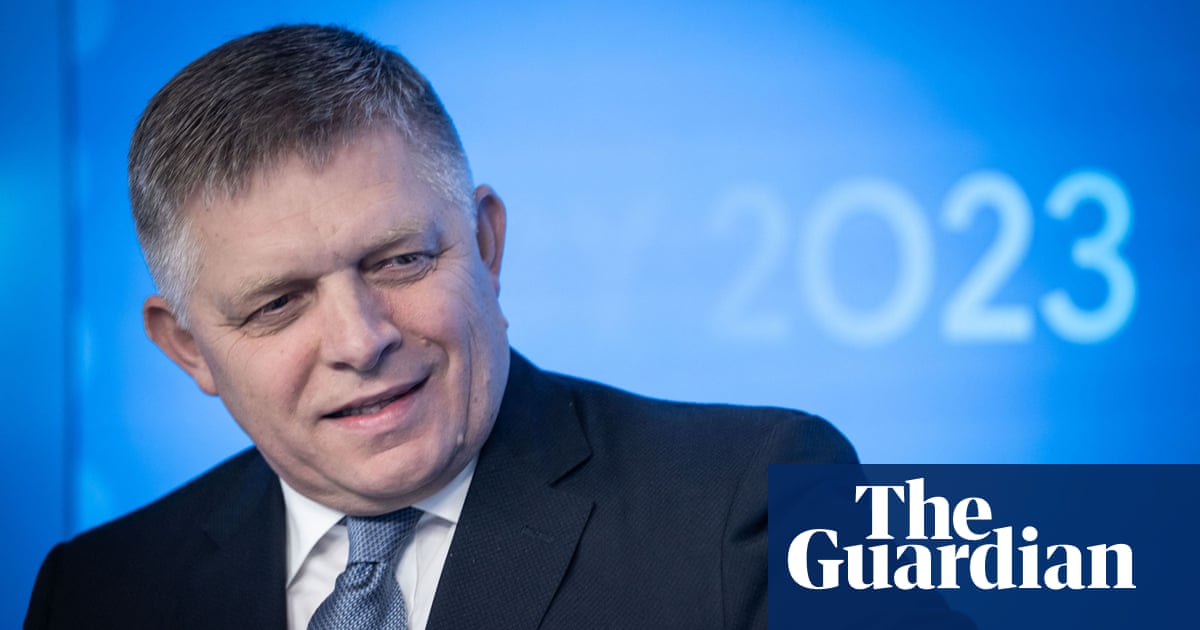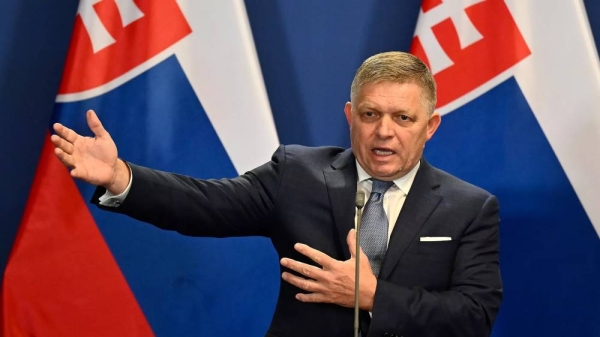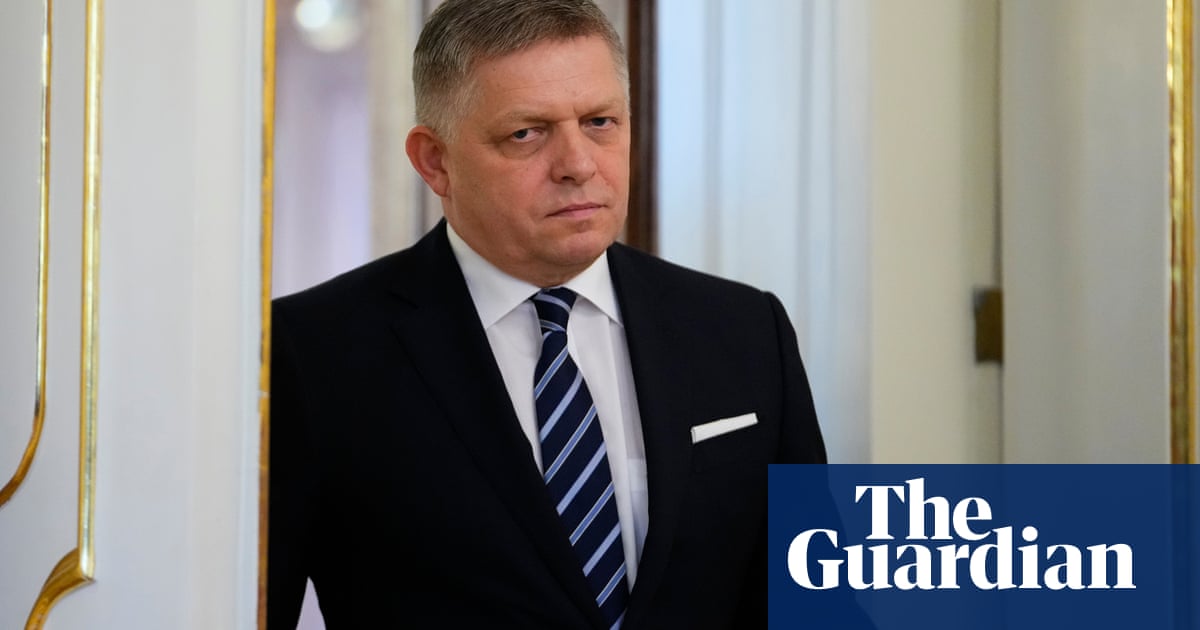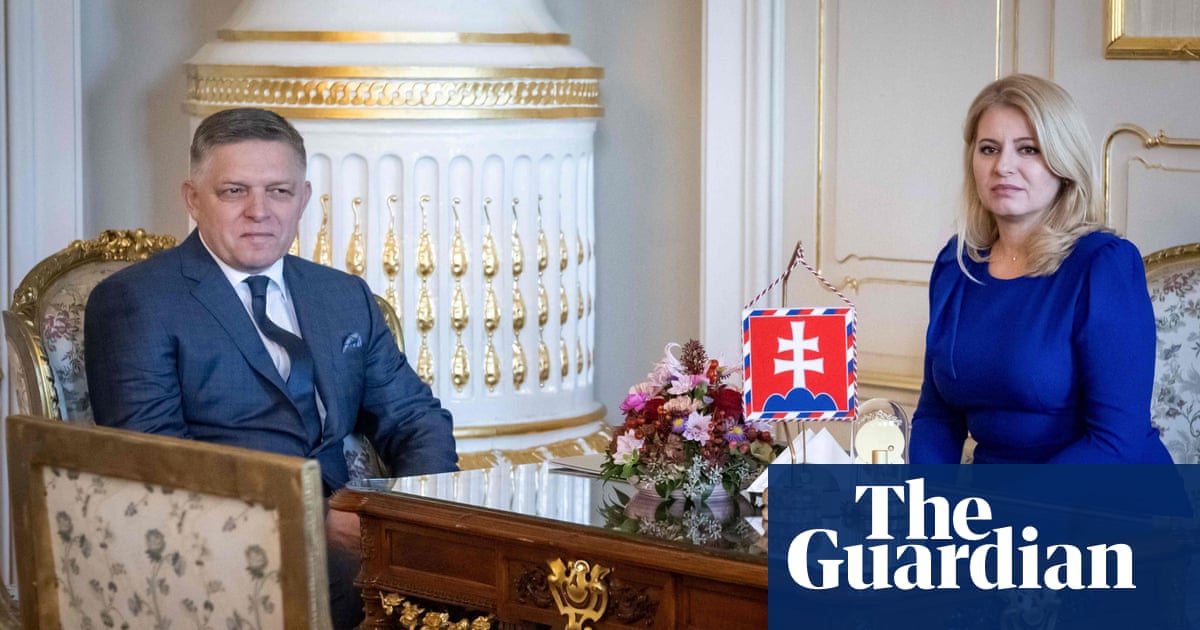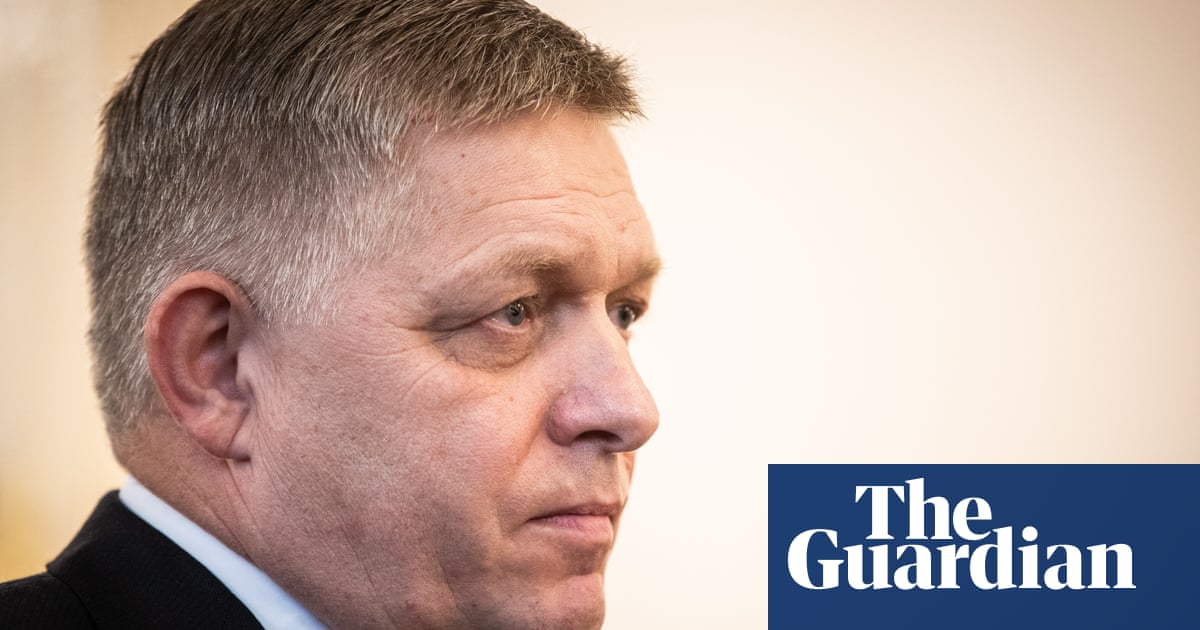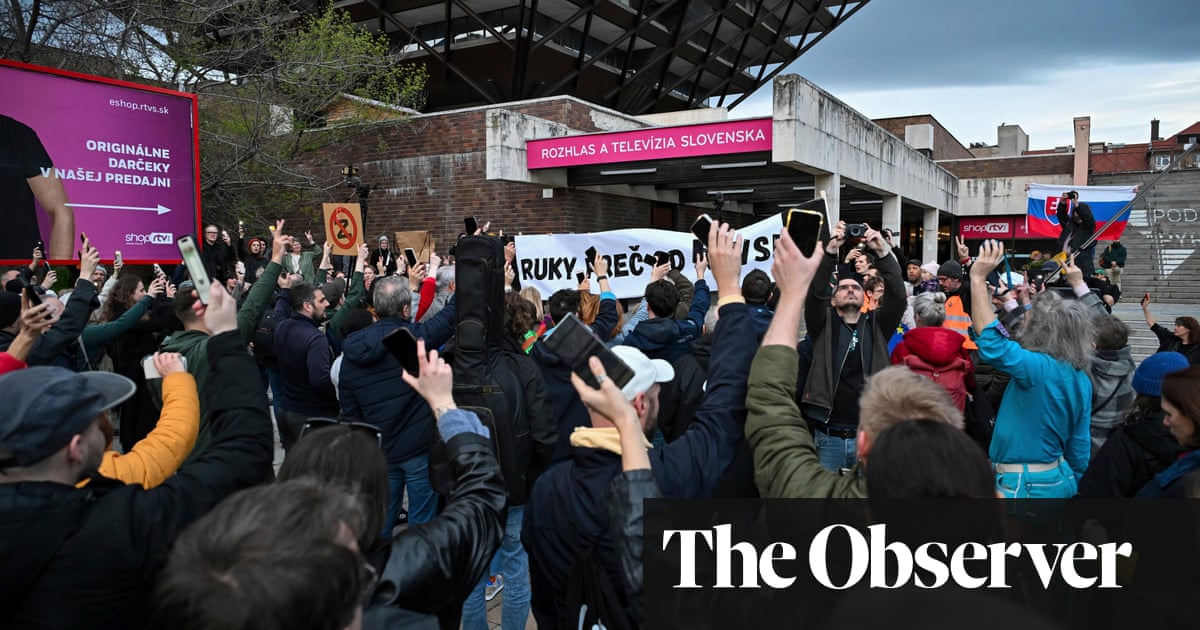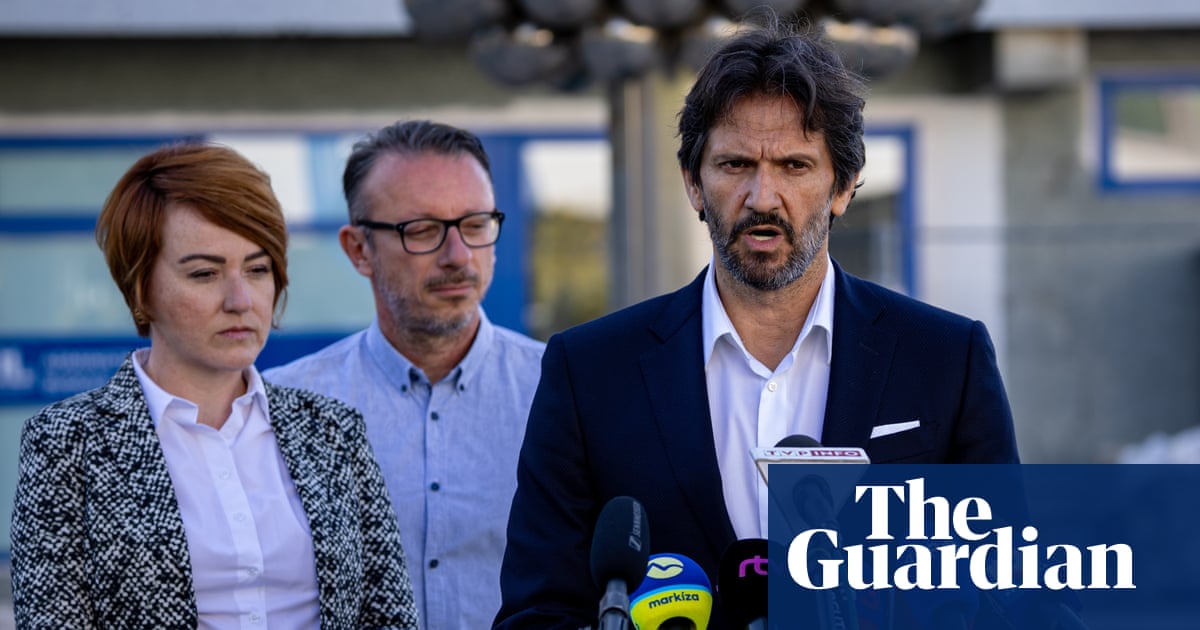
The Slovakian prime minister, Robert Fico, is in a stable condition but “not out of the woods yet”, officials have said, as the country’s president-elect pleaded for unity after a shooting that laid bare the deep political divisions of recent months.
The shooting, the first major assassination attempt on a European political leader in more than 20 years, sent shockwaves across the continent, with leaders linking the violence to an increasingly febrile and polarised political climate across its countries in the run-up to European parliament elections in June.
“It is shocking to see that someone can become the victim of his political ideas. Three weeks ahead of the elections, that is extremely alarming,” said Belgium’s prime minister Alexander De Croo, whose country holds the rotating EU presidency. “Let’s make it an intense campaign when it comes to words, but not beyond that.”
Slovakia’s interior minister, Matúš Šutaj Eštok, described the attack as politically motivated and said the suspect was a man who had acted alone and who had participated in anti-government protests. “This is a lone wolf who had radicalised himself in the latest period after the presidential election,” Eštok told reporters.
That election, won by Fico’s ally Peter Pellegrini in April, heightened tensions in the country, where Fico has pursued a divisive agenda since returning for a third stint as prime minister in October.
The defence minister, Robert Kaliňák, said Fico was in a stable condition, though it was too early to say the outlook was positive. “He’s still not out of the woods yet,” Kaliňák said. “I cannot say yet that we are winning or that the prognosis is positive.”
At least five shots were fired at Fico, 59, on Wednesday as he met a small group of supporters after a government meeting in the town of Handlová, about 90 miles (150km) north-east of the capital, Bratislava. The suspect, identified by local media as Juraj Cintula, 71, has been charged with premeditated attempted murder.
Pellegrini said he had been able to have a short conversation with Fico in the hospital but said the leader’s condition remained critical. “He is able to speak, but only a few sentences and then he is really tired because he is on some medication,” he told reporters. “We cannot say at this moment that the prime minister is completely safe.
“Prime minister Robert Fico escaped death by just a hair. If those gunshot wounds were just a few millimetres to either side, we would be talking about him as the late prime minister.”
Pellegrini appealed for unity in what he described as a “divided Slovakia”, calling on people to temper their emotions. Regardless of their political or religious leanings, people needed to realise that “we crossed a red line” with the shooting, he said. “I would like to ask everyone in Slovakia to reject any violence in any form, please let us not escalate this violence.”
Earlier in the day Pellegrini called on parties to suspend or tone down their campaigning for the EU elections. Michal Šimečka, the leader of the biggest opposition party, the centrist Progressive Slovakia, said his grouping had already done so.
Leaders from across the political divide in Europe have denounced the assassination attempt, calling it an attack on democracy.
The Polish prime minister, Donald Tusk, said he had received threats since the shooting. “There was a lot of it yesterday,” he said in a post on X illustrated with a screenshot of a comment, also on X, saying, “Today, Slovaks gave us an example of what should be done with Donald Tusk” if he decided not to carry out investment in a big airport in central Poland.
The Polish website Wp.pl, citing a source at the state protection service, said Tusk’s protection would be strengthened.
The Hungarian prime minister, Viktor Orbán, a political ally of Fico’s, claimed he was now “fighting for peace alone” in the EU. Orbán, like Fico, advocates for peace talks between Ukraine and Russia, and has characterised next month’s European elections as a referendum on the issue. Polls suggest populist and hard-right parties will make gains in the 27-nation bloc.
The suspect, Cintula, is said to be a former security guard at a shopping centre, the author of three books of poetry, and to have spoken on YouTube of his desire to form a political movement.
On Thursday, several police officers were stationed at the entrance of the unassuming grey apartment block where Cintula had lived for 40 years.
The news outlet Aktuality.sk cited the suspect’s son as saying his father was the legal holder of a gun licence.
In an undated video posted on Facebook, a man – whom Reuters verified as the alleged attacker – was seen saying: “I do not agree with government policy.”
Fico was taken to a hospital in the city of Banská Bystrica after the shooting.
On Thursday morning, Miriam Lapunikova, the director of the hospital, said the prime minister had undergone five hours of surgery with two teams to treat multiple gunshot wounds.
“At this point his condition is stabilised but is truly very serious, he will be in the intensive care unit,” Lapunikova said.
As Slovaks commuted to work on Thursday, many were still processing the news. Mária Szabó, a shopkeeper in Bratislava, said: “I don’t have words for this. This should never have happened in the 21st century, no matter who you vote for. Our country is heading in the wrong direction.”
Fico, a veteran populist politician, returned to power in elections last year after promises not to send “another bullet” to Ukraine, criticism of sanctions targeting Russia, and campaigns against LGBTQ+ rights.
The first months of his return have proved divisive, with thousands of people taking to streets across the country to protest against measures that critics have warned will imperil freedom of the press, and the elimination of a special prosecutor post that deals with major crime and corruption.
Fico has fiercely criticised Slovakia’s mainstream media and refused to speak to some outlets, while members of his party have taken aim at media and opposition actions in recent months.
The outgoing president, Zuzana Čaputová, said she would invite all parliamentary party leaders for a joint meeting in an attempt to “calm” the political tensions that have been exacerbated after the shooting.
“Let us step out of the vicious circle of hatred and mutual accusations,” she said at a news conference in Bratislava. “What happened yesterday was an individual act. But the tense atmosphere of hatred was our collective work.”
She made her statement alongside Pellegrini, her political rival, in a joint effort to temper the recent political tensions.
Gábor Czímer, a political journalist at the Slovakian news outlet Ujszo.com, told the Associated Press that Fico’s return to power had laid bare how “Slovak society is strongly split into two camps” – one that was friendly towards Russia and another that pushed for stronger connections with the EU and the west.
“At the same time, I couldn’t imagine that it would lead to physical violence,” Czímer said.






